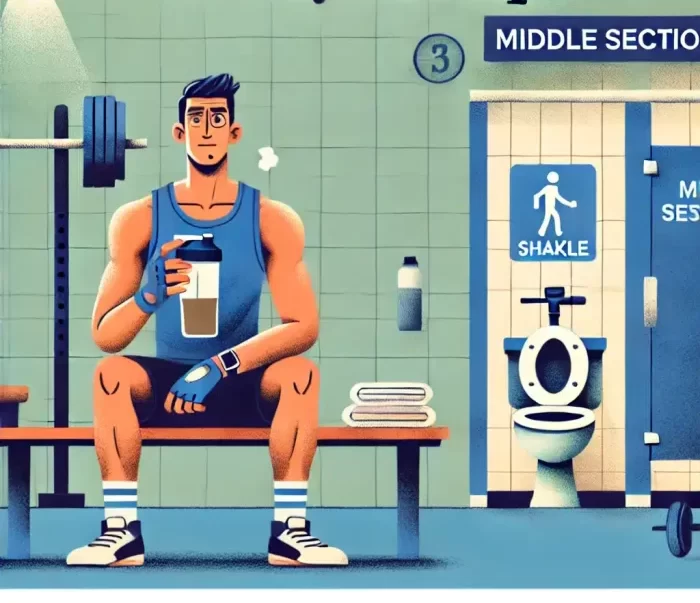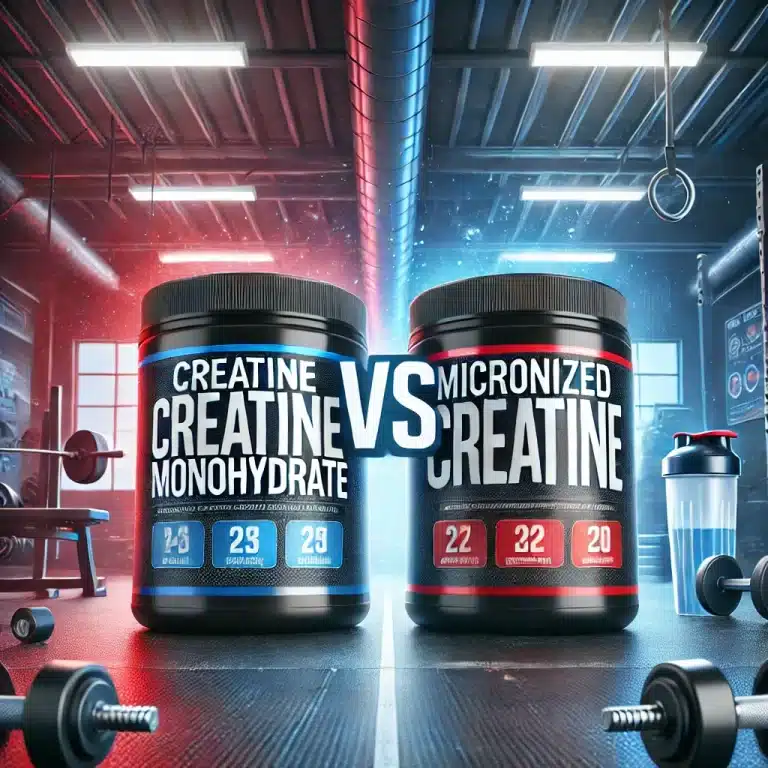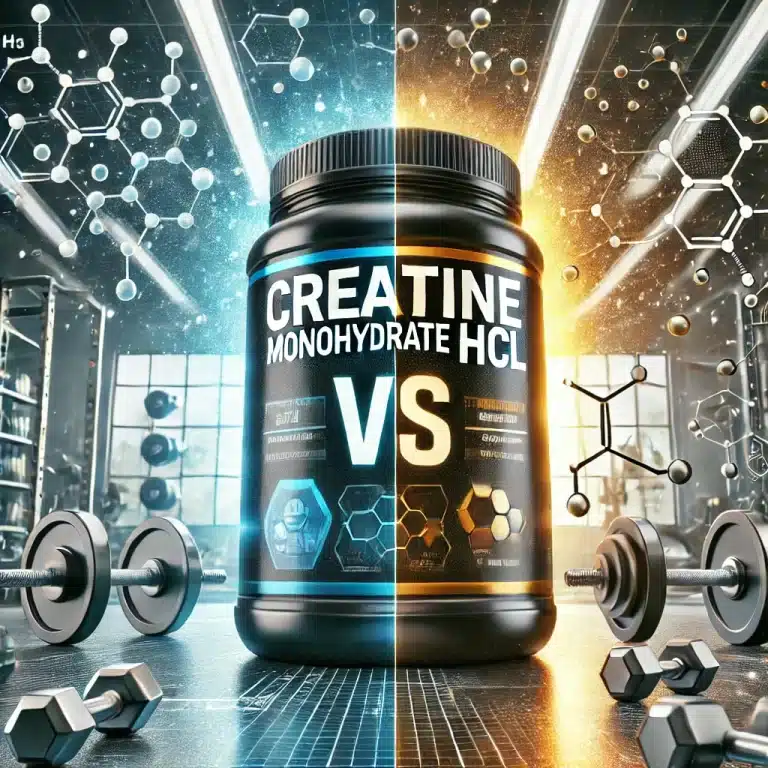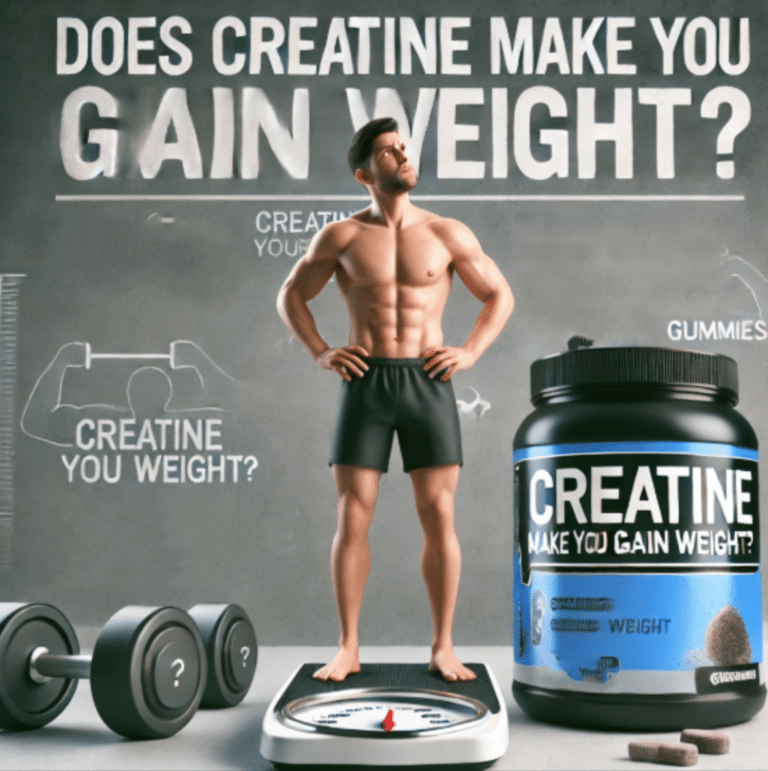Does Pre-Workout Make You Poop? The Truth About Pre-Workout and Digestion
If you’ve ever taken a pre-workout supplement and found yourself making a sudden dash to the bathroom, you’re not alone. Many gym-goers have experienced the phenomenon where, minutes after drinking their pre-workout, nature calls, sometimes urgently. But why does this happen? Is it the caffeine, the artificial sweeteners, or something else entirely?
The reality is that pre-workout affects everyone differently, and several common ingredients can contribute to digestive urgency. While for some, it’s just a mild inconvenience, for others, it can disrupt an entire workout. The goal of this article is to break down why pre-workout might make you poop, the common ingredients responsible, and how to avoid digestive distress while still getting that energy boost. We’ll also explore scientific research, practical strategies, and alternative pre-workout options to help you navigate your fitness routine without worrying about bathroom breaks.
Why Does Pre-Workout Make You Poop?
If pre-workout sends you running to the bathroom shortly after taking it, you’re not alone. Several key ingredients in these supplements can stimulate digestion, increase gut motility, and trigger unexpected bowel movements. Let’s take a closer look at why this happens and which ingredients may be to blame.
1. Caffeine and Its Laxative Effect
One of the biggest reasons pre-workout makes people poop is caffeine, a primary ingredient in many pre-workout supplements. While caffeine is known for boosting energy, it also has a strong stimulatory effect on the digestive system.
- Caffeine increases colonic contractions. Just like coffee, caffeine triggers the colon to contract, speeding up the movement of waste through your intestines. Studies suggest that caffeine can increase colon activity by up to 60% compared to water.
- It stimulates stomach acid production. More stomach acid can speed up digestion, but in some people, it may also irritate, leading to an urgent need to poop.
- It acts as a diuretic. Caffeine increases urine production, and dehydration can lead to loose stools as the body attempts to retain more fluid.
- It triggers the nervous system. Caffeine stimulates the sympathetic nervous system, also known as the “fight-or-flight” system. This can lead to heightened gut motility, causing food to pass through the intestines faster than usual.
2. Artificial Sweeteners and Sugar Alcohols
Many pre-workout formulas contain artificial sweeteners or sugar alcohols like sucralose, aspartame, sorbitol, and erythritol to add flavor without extra calories. These ingredients may taste great, but they can also cause digestive distress.
- Sugar alcohols are poorly absorbed in the intestines, which means they draw water into the gut. This can lead to bloating, gas, cramping, and even diarrhea.
- Sucralose and aspartame may disrupt gut bacteria. Some research suggests that artificial sweeteners can alter the microbiome, leading to stomach discomfort and irregular bowel movements.
- They cause an osmotic effect. Sugar alcohols pull water into the intestines, loosening stool consistency and increasing the frequency of bowel movements.
If you frequently experience bloating or sudden urges to poop after taking pre-workout, checking the label for artificial sweeteners might be a good first step.
3. Beta-alanine and Its Stimulatory Effect
Beta-alanine is best known for causing a tingling sensation (paresthesia), but it may also contribute to mild stomach discomfort and bowel urgency in some users.
- Beta-alanine increases nerve sensitivity, which could make your digestive tract more active.
- It may trigger mild gut irritation, especially in people who are sensitive to it.
While not everyone experiences digestive issues from beta-alanine, if you’re sensitive to it, consider taking a lower dose or choosing a pre-workout without it.
4. Magnesium and Other Electrolytes
Magnesium is a common ingredient in pre-workout supplements due to its role in muscle contraction and nerve function. However, certain forms of magnesium act as natural laxatives.
- Magnesium citrate and magnesium sulfate are often used as stool softeners due to their ability to pull water into the intestines.
- Even small doses can have a laxative effect on more sensitive people.
- Electrolytes like potassium and sodium can impact digestion, and when taken in high doses, they may speed up gut motility.
If your pre-workout supplement contains high amounts of magnesium, this could be a reason for your unexpected bathroom trips.
5. Increased Blood Flow and Nervous System Activation
Pre-workout is designed to increase blood flow to muscles, but this process doesn’t just affect your arms and legs, it also affects your digestive system.
- Higher blood flow to the gut can stimulate digestion, making it more efficient.
- Your nervous system plays a role in digestion, and the activation of the sympathetic nervous system (from caffeine and other stimulants) can increase gut motility, leading to an urge to poop.
- Pre-workout increases adrenaline levels, which can make your digestive tract more active and cause unexpected bowel movements.
This combination of blood flow changes and nervous system activation can be especially noticeable if you take pre-workout on an empty stomach, as digestion happens even faster.
6. Pre-Workout and Stress Response
Taking pre-workout isn’t just about energy, it triggers a physiological response in your body. Your heart rate goes up, your blood pressure increases and your body enters a state of heightened alertness. This stress response can sometimes affect the gut, leading to sudden urges to use the bathroom.
- Your gut is directly connected to your brain via the gut-brain axis, meaning stress and stimulation can impact digestion.
- Some people experience “pre-workout anxiety,” which can contribute to digestive issues, including the need to poop.
How Long After Taking Pre-Workout Will You Need to Poop?

The timing of when pre-workout will send you to the bathroom depends on several factors, including your metabolism, gut sensitivity, caffeine tolerance, and whether you’ve eaten beforehand. For most people, the effects of pre-workout kick in within 15 to 45 minutes, and if it’s going to trigger a bowel movement, it usually happens within that timeframe.
1. The Role of Metabolism and Absorption Speed
Pre-workout supplements are designed to be absorbed quickly to deliver an energy boost before your workout. If you have a fast metabolism, your body will process the ingredients more rapidly, meaning caffeine and other stimulants will hit your system sooner. This can lead to an earlier digestive response and the potential for an urgent bathroom trip within 10-20 minutes.
Conversely, if you have a slower metabolism or take pre-workout with food, digestion takes longer, and you might not feel the effects until 30-45 minutes later.
2. Empty Stomach vs. Taking Pre-Workout with Food
One of the biggest factors influencing digestion speed is whether you take pre-workout on an empty stomach.
- Empty Stomach: If you drink pre-workout first thing in the morning before eating anything, it will hit your system fast. The caffeine and other active ingredients can rapidly stimulate digestion, leading to a much quicker trip to the restroom, sometimes in as little as 5-15 minutes.
- With Food: If you take pre-workout after eating a meal or snack, it will take longer for your body to absorb the ingredients. This delays the digestive response, making you more likely to feel the effects within 30-45 minutes instead of immediately.
3. Caffeine Sensitivity and Individual Differences
Not everyone reacts to caffeine in the same way. If you are highly sensitive to caffeine, even a small dose can quickly stimulate your gut and send you running to the toilet. For these individuals, bowel movements may happen within 10-20 minutes of taking pre-workout.
On the other hand, if you have a higher caffeine tolerance, your body might not respond as aggressively, and you may not notice any digestive effects at all. This is why some people can drink coffee or take pre-workout without any issues, while others experience an immediate need to poop.
4. The Type of Pre-Workout Formula Matters
Not all pre-workout supplements are created equal. Some contain higher doses of caffeine, magnesium, and artificial sweeteners, all of which can contribute to a more rapid and intense digestive response. If you’re taking a high-stimulant pre-workout with 300+ mg of caffeine, chances are it will hit your system faster and harder than a low-stimulant or non-stimulant formula.
5. Other Ingredients That Speed Up Digestion
Aside from caffeine, other ingredients in pre-workout can influence how quickly it affects digestion:
- Artificial Sweeteners (like sucralose, aspartame, or sugar alcohols) – These can cause bloating, gas, and diarrhea in sensitive individuals, speeding up bowel movements within 15-30 minutes.
- Magnesium (especially in magnesium citrate form) – Acts as a natural laxative, which can stimulate a bowel movement within 30-60 minutes.
- Beta-Alanine and Nitric Oxide Boosters – These increase blood flow and can sometimes lead to digestive urgency, though their effects on digestion are usually milder.
6. Hydration and Fluid Intake
Many people mix their pre-workout with a large amount of water, which can also accelerate digestion. Drinking a high volume of liquid, especially on an empty stomach, increases gastric motility, meaning your stomach contents move through your system more quickly. This can contribute to an earlier bowel movement, particularly if combined with caffeine and other stimulants.
How to Prevent Pre-Workout from Making You Poop?
If you love your pre-workout but hate the sudden bathroom trip, don’t worry, there are several ways to reduce the digestive impact while still enjoying the energy boost. Here’s what you can do:
1. Take Pre-Workout with a Small Meal
One of the easiest ways to slow down digestion and prevent an urgent bathroom trip is to pair your pre-workout with a light snack. Eating a small meal that includes protein, healthy fats, or fiber can help absorb some of the stimulating effects of caffeine and artificial sweeteners, reducing the likelihood of a sudden bowel movement.
- Good pre-workout snack options:
- A banana with peanut butter
- Greek yogurt with granola
- Whole-grain toast with avocado
- A handful of nuts and berries
Avoid highly processed or greasy foods, as these can make digestive issues worse when combined with pre-workout.
2. Opt for a Lower-Caffeine or Stimulant-Free Pre-Workout
Since caffeine is one of the biggest triggers for sudden bowel movements, switching to a lower-caffeine option can make a big difference. Many pre-workout supplements contain anywhere from 150 mg to 400 mg of caffeine per serving, which is equivalent to one to four cups of coffee. If you’re sensitive to caffeine, try a low-stimulant or stimulant-free pre-workout formula.
- Look for pre-workouts with:
- Less than 200 mg of caffeine per serving (if you still want an energy boost)
- Caffeine-free options that use natural alternatives like beetroot powder or BCAAs for endurance
3. Drink It Slowly Instead of Chugging
Slamming back your pre-workout in one go might seem like a great idea when you’re in a rush, but it can shock your digestive system. Drinking too quickly can lead to rapid absorption, which may trigger an immediate digestive response.
Instead, try sipping it gradually over 10-15 minutes to allow your body to adjust. This method can help reduce stomach irritation and minimize the chances of an unexpected trip to the restroom.
4. Check for Artificial Sweeteners and Sugar Alcohols
Many pre-workout supplements contain sorbitol, erythritol, sucralose, or aspartame, which can cause bloating, gas, or diarrhea in some people. If you suspect that artificial sweeteners are contributing to your digestive distress, check the ingredient list and opt for a pre-workout that uses natural sweeteners like stevia or monk fruit instead.
- Artificial sweeteners to avoid if you have a sensitive stomach:
- Sucralose (Splenda)
- Aspartame
- Sorbitol
- Erythritol
5. Stay Hydrated, But Don’t Overdo It
Hydration plays a key role in how your body processes pre-workout ingredients. If you’re dehydrated, caffeine’s effects may hit you harder, making you more likely to experience stomach irritation and an urgent need to poop.
- What to do: Drink enough water throughout the day, but avoid chugging excessive amounts right before taking pre-workout, as too much liquid at once can speed up digestion.
- Try this: Sip on 8-16 oz (250-500 ml) of water alongside your pre-workout instead of drinking a massive amount all at once.
6. Space Out Your Pre-Workout and Gym Time
If your pre-workout consistently sends you to the bathroom, consider adjusting when you take it. Instead of drinking it right before leaving for the gym, try taking it 30-45 minutes before your workout to give your body time to process it fully before exercising.
- Ideal timing:
- If pre-workout triggers a quick bathroom trip → Take it earlier (45 minutes before your session).
- If you want the energy boost to last longer → Take it closer to your workout (15-30 minutes before).
7. Experiment With Different Brands
Not all pre-workouts are created equal. Some brands contain more stomach-irritating ingredients than others, so it might take a little trial and error to find one that works best for your body.
- How to test different formulas:
- Start with half a serving of a new pre-workout and monitor your reaction.
- Look for simpler ingredient lists to reduce the chance of gut irritation.
- Avoid formulas with excessive amounts of magnesium, artificial sweeteners, and caffeine.
8. Listen to Your Body
Ultimately, everyone reacts differently to pre-workout. If you consistently experience digestive issues, it might be a sign that a certain ingredient isn’t agreeing with your system. Pay attention to how you feel and make adjustments as needed.
- Signs you may need to switch pre-workouts:
- Frequent diarrhea or loose stools after taking pre-workout
- Stomach cramps or bloating shortly after drinking it
- Feeling overly jittery or nauseous during workouts
In these cases, it might be worth exploring a cleaner, more natural pre-workout alternative or simply scaling back your dose.
Final Thoughts: Should You Worry About Pre-Workout Making You Poop?
While pre-workout can cause digestive issues for some people, it’s usually not a serious problem. The most common culprits, caffeine, artificial sweeteners, beta-alanine, and magnesium, can all contribute to an urgent need to use the bathroom, but making small adjustments can minimize the effects.
If you find that pre-workout consistently disrupts your digestion, try lowering your dose, switching to a different formula, or taking it with food. Everyone’s body reacts differently, so it may take some trial and error to find the best pre-workout for you.
At the end of the day, pre-workout is meant to enhance your workout performance, not send you running to the restroom. By understanding its effects and making smart choices, you can enjoy the benefits without the unwanted side effects. And if you’re also wondering, does creatine make you poop? the answer might depend on how your body processes supplements in general.






